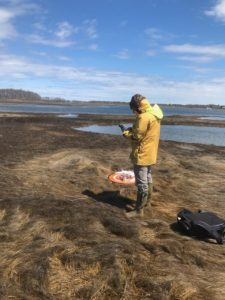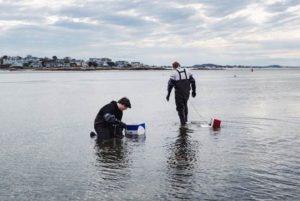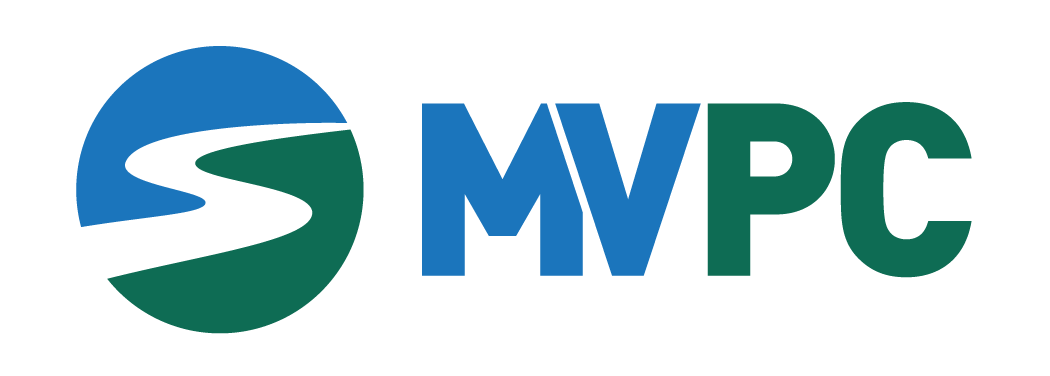Though the COVID-19 pandemic has forced businesses and organizations like MVPC to find creative ways to conduct most projects remotely, fieldwork is an imperative part of our Coastal Coordinator, Peter Phippen’s work program. Peter leads many hands-on restoration projects in the Great Marsh and coordinates technical assistance for the Eight Towns and the Great Marsh Massachusetts Bays Program Local Governance Committee. Conducting fieldwork in our socially distanced world is no small task, but Peter and his team have gotten the 2020 Great Marsh fieldwork season off to a good start!
One of the marsh restoration projects that have already begun is the runnel project. Runnels are small drainage channels that can be implemented to help drain water pooling in the marsh and restore natural water movement. Excess water in the marsh can degrade plant quality and lessen the marsh’s ability to trap sediment and rebuild itself. Below is a photo of setting up the drone to scout for high marsh flooded areas that would be potential runnel sites as part of the restoration project.

Another project underway is the establishment of a new eelgrass bed in Plum Island Sound. Eelgrass has been established as an important part of healthy coastal ecosystems. Healthy eelgrass beds not only provide critical habitat to many commercially and ecologically important species of marine life but also helps mitigate the impacts of climate change in the marsh habitat. Peter and his team have been harvesting eelgrass at Cambridge Beach in Gloucester to transplant and establish in the new eelgrass bed in Plum Island Sound.

